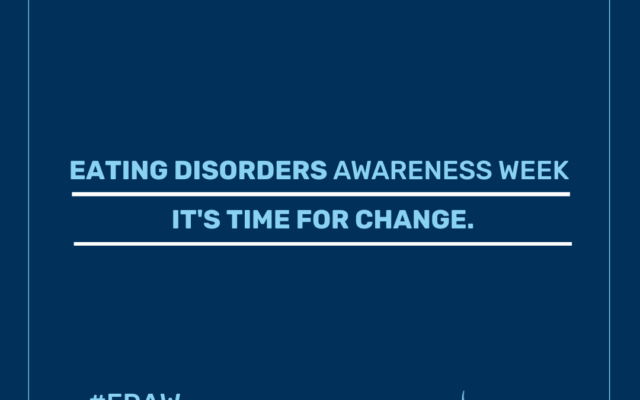Education and breaking down barriers key to Eating Disorder Awareness

Disordered eating isn’t just a teenage girl problem, and the week of February 27th through March 5th is a time to educate people about the issue. Rachael Steil is a former MSU athlete who now spends her time shining a light on a problem that affects millions world-wide. She says eating disorders, including anorhexia, bulimia, binge eating, and even over exercising to control weight can affect anyone.
She says there is no easy way to detect an eating disorder in someone else because it’s more than just about weight gain or loss. She said some signs to watch for include changes to mood or behavior, especially around food, extreme or restrictive diets, food rituals, difficulty concentrating or fainting spells, among many others. Eating disorders fall on a spectrum Steil says, that varies by individual, and she encourages people to get help, no matter what the level of severity.
Steil’s own eating disorder could have sidelined her permanently, but instead propelled her onto a new career path. The former MSU runner, who suffered silently for years with an obsession over weight and performance, now spends her life educating others about disordered eating. Steil visits high schools and colleges, and has written a book called Running in Silence about her experience. She says most people have a misconception about what disordered eating is.
Steil says disordered eating falls on a spectrum that includes not only anorhexia and bulimia, but fear and anxiety around food, binge eating, and even over exercising to control weight. Steil, who suffered in silence with an eating disorder while an athlete at Michigan State University, says it also affects people of all ages, races, and genders.
She says 33 percent of men are affected by disordered eating, and that number would be higher if there were not such a stigma around getting treatment. Steil says because we make assumptions about people based on their weight and behaviors around food, it’s harder to break through the stigma. She says food is also not only tied to physical health, but also to emotions, and people don’t easily let go of thse beliefs. Steil says education is key to breaking down barriers to getting help.
Since the onset of the COVID 19 pandemic the number of people showing up to treatment for disordered eating has jumped by 107%. Steil says the stigma surrounding disordered eating has always been a problem, but the pandemic only made it worse.
Getting help for an eating disorder is one thing, but educating people about what an eating disorder is and who might be suffering is another, says Rachael Steil, an advocate and author, and survivor. Steil, who wrote about her experience with an eating disorder as a star athlete while at Michigan State University says there is much to be done, especially breaking down barriers for treatment.
Steil says too often eating disorders go undetected because people don’t know what to look for, but also because those who suffer are reluctant to talk about the problem. Eating disorders affect nearly 30 million Americans, according to the National Eating Disorders Association, who offer resources at their website NEDA.org.



